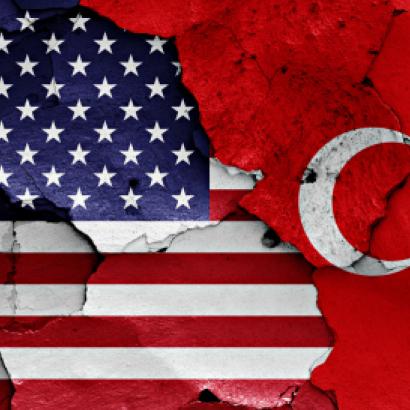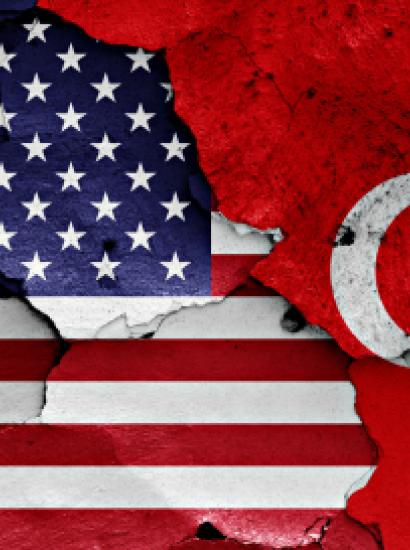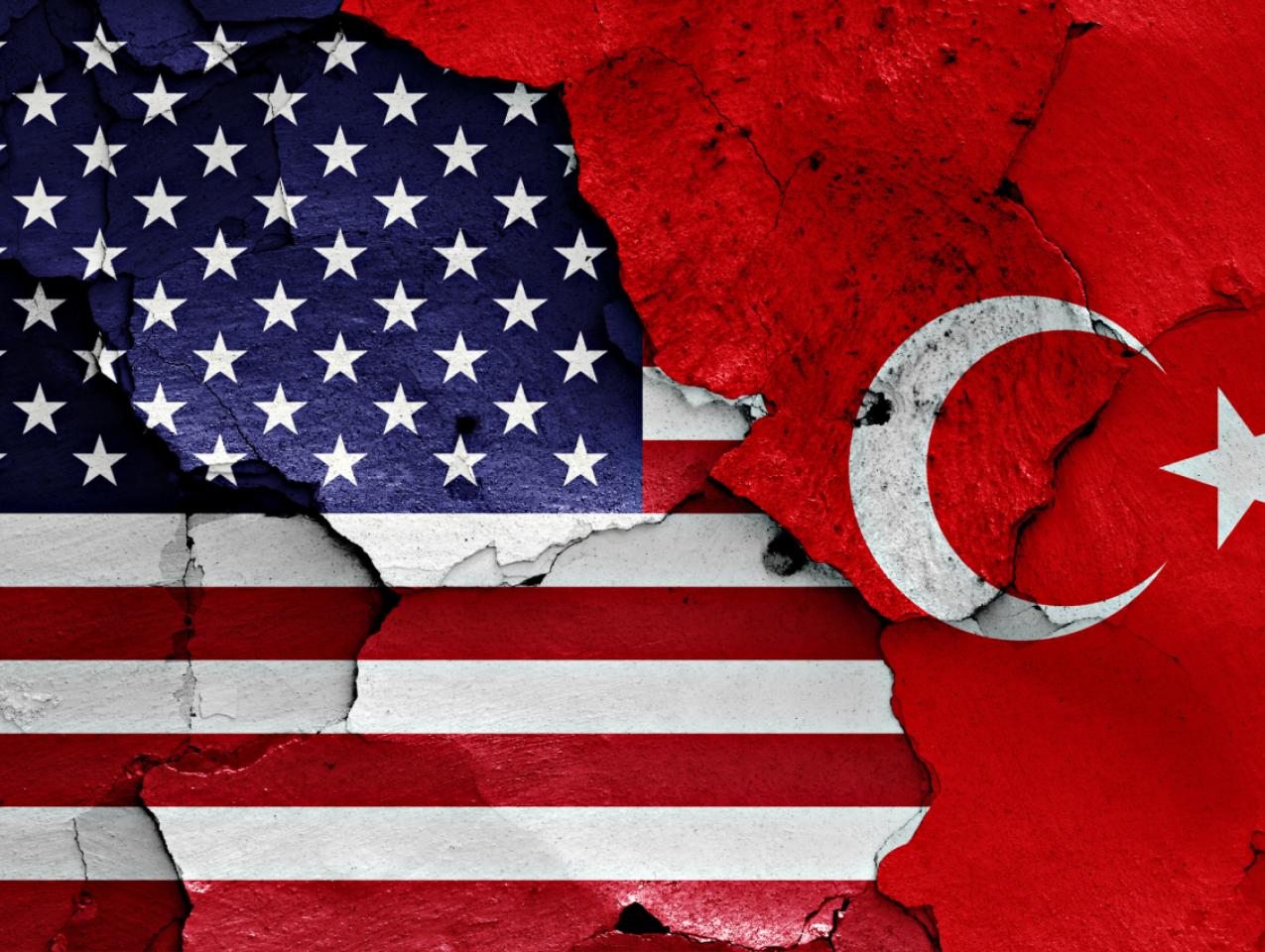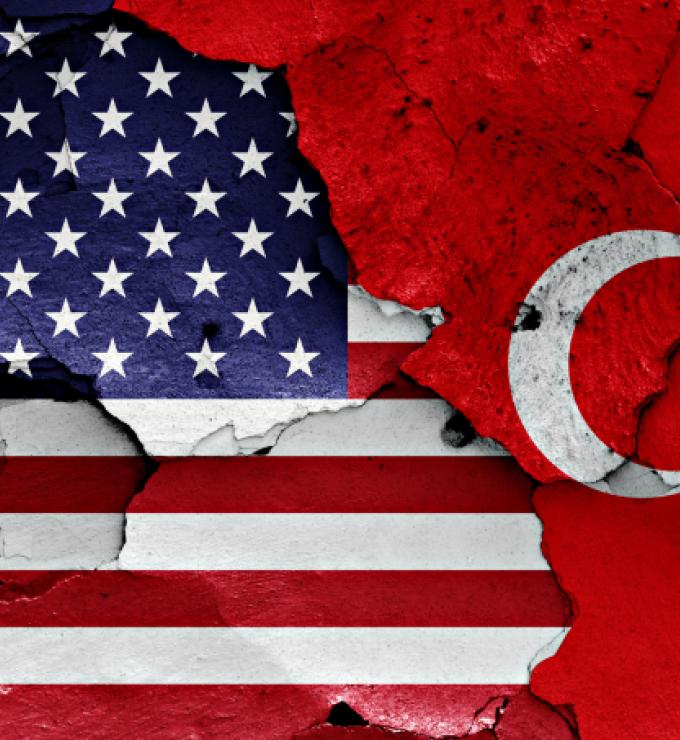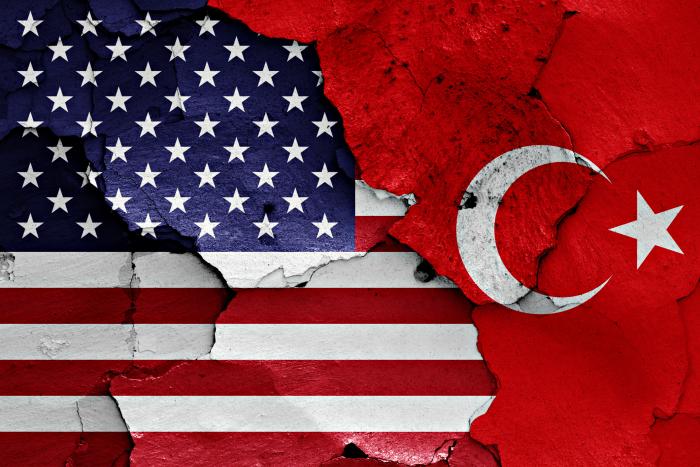- Politics, Institutions, and Public Opinion
In America today, populists on both sides of the political aisle demand that allies should carry more of the burden, especially the military burden, of upholding the international order. Meanwhile, the fear of a rising China cuts against the grain of this thinking. Chinese leader Xi Jin Ping’s more aggressive foreign policy has generated an equally strong impulse to marshal resources and organize allies to contain China. In an effort to reconcile the contradictory impulses, many analysts and political leaders have fastened onto the idea of retreating from the Middle East.
It was President Obama who first planted seeds of this thinking, with his “pivot to Asia.” A similar strain of thought runs through the Trump administration. “We’re getting out. Let someone else fight over this long blood-stained sand,” President Trump said in October 2019. “The job of our military is not to police the world.” Trump was referring specifically to Northwest Syria, but many heard in his words a desire to leave the Middle East as a whole.
A full American retreat from the region, however, will cause more problems than it will solve. The Middle East is the center of gravity of the world energy markets, and a major transportation hub for all of Eurasia. If America withdraws, China will fill the ensuing vacuum. With the assistance of the Russians and the Iranians, it will use its new position of dominance to Finlandize not just the countries of the region but also of Europe and Africa as well.
A sound global strategy requires the United States to remain the hegemonic power in the Middle East, and to work aggressively to contain China, Russia, and Iran. Yet domestic politics prohibits American leaders from making the large commitments of American troops that would make the pursuit of these goals a relatively simple matter. Squaring that circle is the biggest challenge that the incoming administration will face, and only one method holds out any possibility of success, namely, building a coalition of regional powers capable of protecting Western interests. When one examines the roster of available partners for such a project, the bench is thin. Among America’s Middle Eastern allies, very few have the ability to project power beyond their borders.
Three stand out above all the rest: Israel, Saudi Arabia, and Turkey. These are the three legs of the American footstool in the Middle East. Without any one of them, the footstool will fall. Unfortunately, in recent years Turkish-American relations have hit a low point. The reasons for this are many, and there is blame enough to go around on all sides. Over the last year, however, a new impediment has appeared: the rise in Washington of the “neo-Ottoman doctrine.” A significant portion of the American strategic community now subscribes to the view that President Erdogan of Turkey is totally lost to the West. He is pursuing, so the argument goes, an “Islamist” foreign policy whose defining characteristic is support for the Muslim Brotherhood in the Arab world. This support is supposedly no mere tactic; it is allegedly a core commitment of Erdogan, setting him on a collision course with the West, Israel, and the Arab allies of the United States.
However, the neo-Ottoman doctrine is a caricature of Turkish foreign policy. To be sure, Erdogan does align with the Muslim Brotherhood on certain issues, including support for Hamas. Indeed, this alignment should trouble Washington, and it should give rise to vigorous disagreement with Ankara. But the neo-Ottoman doctrine goes much further. It exaggerates the significance of this one factor, misconstrues the main sources of Turkish behavior, and blinds Washington to opportunities that could potentially lay the foundation for a renewal of Turkish-American cooperation.
The flaws in the doctrine begin with a fundamental misreading of the map. Turkey is situated at the intersection of the Balkans, the Caucasus, and the Middle East. Each of these regions is famous in its own right for the complexity and ruthlessness of its politics, yet Ankara must contend with all three simultaneously. As a result, Turkish leaders are focused on threats to the homeland on Turkey’s immediate borders. These, of course, include threats from the Kurdish regions of Iraq and Syria, but conditions in the Arab world more broadly are not Turkey’s (or Erdogan’s) top priority.
Establishing productive relations with Ankara requires Americans to understand— and to respect—Turkey’s national security challenges. In recent years, however, Washington’s track record on this score has been weak. In 2014, for example, the Americans began supporting the Syrian wing of the PKK, a Kurdish separatist group that seeks to split Turkey between Kurdish and Turkish states. All Turks, including Erdogan’s most vociferous opponents, regard the PKK as Turkey’s greatest national security threat. Though President Trump has reduced support for the group, the policy has not entirely ended.
After years of complaining about the problem, Erdogan turned to Russian leader Vladimir Putin to purchase the S-400 air-defense missile system. His goal was to send a blunt message to Washington: if you ally with our sworn enemies, we have the option of creating new partnerships and we will not hesitate to exercise it. Erdogan’s Turkish public heard him loudly and clearly, but his American audience received a garbled message. Thanks to the neo-Ottoman doctrine, it understood the S-400 deal to be a core component of Erdogan’s “anti-Western” and “Islamist” ethos. The fact that Turks of all political stripes, including secular nationalists, supported the deal did not register in Washington.
There is a path out of the impasse. It begins with the rediscovery of the common interests between Turkey and the United States. During the Cold War, Americans understood Turkey to be an invaluable counterweight to the Soviet Union—and, after 1979, to revolutionary Iran. The global situation today calls for updating that understanding but, here again, the neo-Ottoman doctrine is clouding the judgement of Washington.
Consider President Trump’s recent withdrawal of troops from Northeast Syria. At the time, proponents of the neo-Ottoman doctrine decried the decision, alleging that, because Ankara was in cahoots with Moscow and Tehran, Trump was delivering Syria to Russia and Iran on a platter. We can now see clearly that this prediction was wrong. In Idlib last March, the Turkish military singlehandedly halted a Russian-Iranian offensive. Shortly thereafter, Turkish-led forces in Libya delivered another black eye to Russia, and in the last month, Erdogan delivered a third blow to Russia—in the war over Karabakh.
That conflict pits Azerbaijan, backed by Turkey, against Armenia, supported by Russia and Iran. In the South Caucasus there are three major powers: Turkey, Russia, and Iran. Baku can defy Russia and Iran only thanks to the support of the Turks, whose assistance to the Azerbaijani military has given it drone warfare capabilities that allow it to overwhelm key Russian defense systems on the battlefield, the same capabilities that Turkey has used to good effect in Syria and Libya. The benefits to the West are considerable. Azerbaijan hosts the only overland route not controlled by Russia by which Central Asian energy reaches Europe. The Turkish-Azerbaijani alliance prevents Putin from putting his thumb on the windpipe of Europe.
Meanwhile, the war confounded leaders in Tehran. The Azerbaijani people, who are ethnically Turkish, live not just in their own country but also across the border in Iran, where they constitute the largest ethnic group after the Persians. When reports spread among them that Tehran was delivering military aid to Armenia, they took to the streets of the Azerbaijani cities of Iran in protest.
The discomfort this causes the Iranian leadership is not lost on Israeli Prime Minister Benjamin Netanyahu. In recent years he has quietly worked in parallel with Erdogan to strengthen Azerbaijan’s military, whose drone warfare capabilities integrate both Turkish and Israeli systems. This point rewards recapitulation. Erdogan, the purported architect of a Sunni Islamist foreign policy, is working in parallel with the leader of the Jewish state to strengthen Shiite Azerbaijan to knock the Shiite Islamic Republic off balance. This is classic Realpolitik, not Islamism.
In sum, Turkey is fulfilling its geostrategic destiny by counterbalancing Russia and Iran. Even as it does so, however, proponents of the neo-Ottoman doctrine are lobbying Congress to impose crippling sanctions on Ankara. By misconstruing basic geopolitical realities, the doctrine risks taking America into an untenable position in the Middle East. An America that has no appetite to deploy large numbers of troops in the Middle East simply cannot contain Russia, Iran, and Turkey simultaneously.
Such an effort will create the very thing it claims to abhor—namely, a Russian, Iranian and Turkish entente, quietly supported by China. That entente would simply speed the departure of the United States from the Middle East. In order to avoid such a prospect, the incoming administration should make the opening of a strategic dialogue with Ankara one of its top priorities.
Michael Doran is a Senior Fellow at the Hudson Institute.








